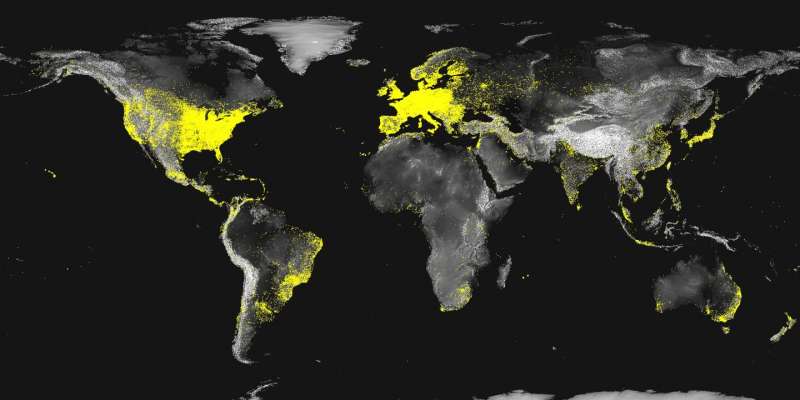Study: Ethnic groups' government influence and internet access go hand in hand

The internet may be a great source of empowerment for the disenfranchised - if they're allowed to have it. A new study that examined the internet access of excluded ethnic groups within countries found that groups subjected to political exclusion were significantly less likely to have internet access.
The findings published in the journal Science show that internet access, like other valuable resources, can be controlled politically and distributed unfairly.
In some ways, the internet has opened educational and political opportunities to people who otherwise have limited access to resources. Once-inaccessible documents can now be found with a click or a tap; individuals with common cause can find one another online and foster political movements. Current events seem to back up that idea, the scientists noted.
"In the wake of the Arab Spring, the internet has often been portrayed as a 'liberation technology,'" the study authors wrote. "Specifically, it has been argued that the internet fosters transparency and accountability of nondemocratic governments."
But this idea assumes that those marginalized people, those who might stand to benefit the most from internet access, are getting that access in the first place. The scientists wondered if, within nations, the politically marginalized groups could be getting left behind.
"Research in political science (including mine) now looks increasingly at the more pernicious effects, such as government censorship and online propaganda," lead author Nils Weidmann, a political science professor at the University of Konstanz in Germany, said in an email.
There are two main ways this might happen, they explained. Ethnic groups who hold political power might push for economic and technological improvements in their home regions, at the expense of others. But governments might also be actively preventing certain communities from getting access to this technology in order to prevent those groups from mobilizing politically.
"In most developing countries, governments are the major, if not the only, provider of telecommunication services," the study authors wrote. "At the same time, in many of these countries, politics operates along ethnic lines, so that one or more groups hold political power at the expense of other, marginalized ones. This allows internet technology to be implemented in a way that benefits certain groups while neglecting others."
To find out if this was the case, the researchers looked to the Ethnic Power Relations database, which logs politically relevant groups and their access to state power from 1946 to 2005. (This includes both the groups that have wielded power and those that have found themselves subject to it.)
Then they estimated internet availability among those groups by pinpointing active internet subnetworks, which account for roughly 256 internet addresses apiece. This simplified the process by reducing the amount of data they had to process and also eliminated certain privacy issues that crop up with studying individual IP addresses.
The researchers controlled for a number of different factors that could affect ethnic groups' internet access, including level of development, geographic location and urban versus rural settings. They looked at nighttime light emissions, which have recently been linked to an area's economic performance and, on a local scale, the level of wealth. They also included indicators of terrain ruggedness and distance from the national capital to factor in geographical inaccessibility.
The scientists found that ethnic groups who were excluded from political power had only about 60 percent of the internet access that favored groups did.
"We were not entirely surprised," Weidmann said of the results. "We know from existing research that politically excluded groups also suffer from other disadvantages - for example, they tend to have a lower level of development, infrastructure, etc. ... The digital disadvantage we identify is just another aspect where this plays out."
After analyzing the results, the researchers also found no evidence that democracy alleviates this tendency; authoritarian or autocratic governments were not uniquely to blame for this trend. If a country with a democratic political system excludes certain groups politically, then those groups also experience this "digital discrimination."
"What our results highlight is the need for equality and fairness in the development of modern ICT," or information and communications technologies, Wiedmann said. "So, in other words, if a development agency sponsors the expansion of internet services somewhere, they should insist on a fair distribution of these services, and not let national governments allocate these services primarily to their favored groups."
More information: N. B. Weidmann et al, Digital discrimination: Political bias in Internet service provision across ethnic groups, Science (2016). DOI: 10.1126/science.aaf5062
Journal information: Science
©2016 Los Angeles Times
Distributed by Tribune Content Agency, LLC.

















